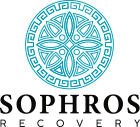Cocaine addiction is a widespread problem that affects millions of people worldwide. Cocaine is a potent central nervous system stimulant that can lead to severe physical and psychological dependence. Individuals who use cocaine may suffer from debilitating symptoms. If left untreated, cocaine addiction can adversely affect an individual’s social, family, occupational, and physical health. Therefore, understanding cocaine addiction symptoms and seeking professional help is crucial.
At Sophros Recovery, we specialize in providing personalized outpatient cocaine addiction treatment. Our evidence-based treatment programs are designed to help clients overcome their addictions and lead fulfilling lives. Our experienced and compassionate team of clinicians works closely with clients, creating personalized treatment plans that meet their specific needs. Contact us today at 866.374.0541 to take the first step toward recovery.
What Are Common Cocaine Addiction Symptoms?
Due to its potential to cause significant harm to both the body and the mind, cocaine addiction is considered one of the most dangerous substance use disorders. Cocaine addiction can lead to various physical, emotional, and social problems if not addressed early. The following are signs that you or someone you love may be struggling with addiction.
1. Intense Cravings
When someone is addicted to cocaine, they will often experience intense cravings to use the drug. These cravings can be so strong that they may feel overwhelming and impossible to resist. Cocaine addiction cravings typically occur when an individual is triggered by a certain person, place, or thing they associate with drug use. The cravings may lead to neglecting responsibilities, reusing the drug even after negative effects, or stealing to get money for more drugs.
2. Lack of Interest in Activities
Cocaine can significantly impact a person’s daily life, including their interests and hobbies. Those suffering from addiction may lose interest in activities they once enjoyed, such as sports, reading, or spending time with friends and family. They may even neglect hygienic practices. The drug assumes priority over everything else, making it nearly impossible to function without using drugs.
3. Weight Loss and Physical Symptoms
Cocaine addiction can lead to a cascade of physical symptoms that are challenging to ignore. The drug can cause weight loss since it suppresses appetite and decreases a person’s desire to eat. Individuals may also experience profuse sweating and skin irritation due to the severe chemical imbalances from the drug. Additional cocaine addiction symptoms may include:
- Anxiety
- Restlessness
- Hyperactivity
- Decreased appetite
- Insomnia
Long-term use of cocaine can lead to heart damage, seizures, and mood disorders that cause potentially severe complications and diminish a person’s quality of life.
Cocaine addiction is a condition that requires immediate professional attention from an outpatient addiction treatment. Learning how to recognize cocaine addiction symptoms can help you or a loved one get the recovery support necessary for leading a healthy, productive life free from addiction. Remember, it is never too late to start the journey to recovery.
Find Cocaine Addiction Treatment at Sophros Recovery
At Sophros Recovery, we understand the complex nature of cocaine addiction and offer outpatient treatment programs tailored to our clients’ unique needs. Our team of experienced and compassionate professionals helps individuals overcome their addictions and achieve a healthier, more fulfilling life.
Our evidence-based treatment approach addresses addiction’s physical and psychological aspects, utilizing a range of proven therapies and techniques. We offer individualized treatment plans that focus on each client’s needs, including cognitive-behavioral, group, and family therapy.
If you or someone you love is struggling with cocaine addiction, don’t wait to get help. Contact Sophros Recovery today at 866.374.0541 or online to learn more about our outpatient cocaine addiction treatment programs and take the first step toward lasting recovery.







